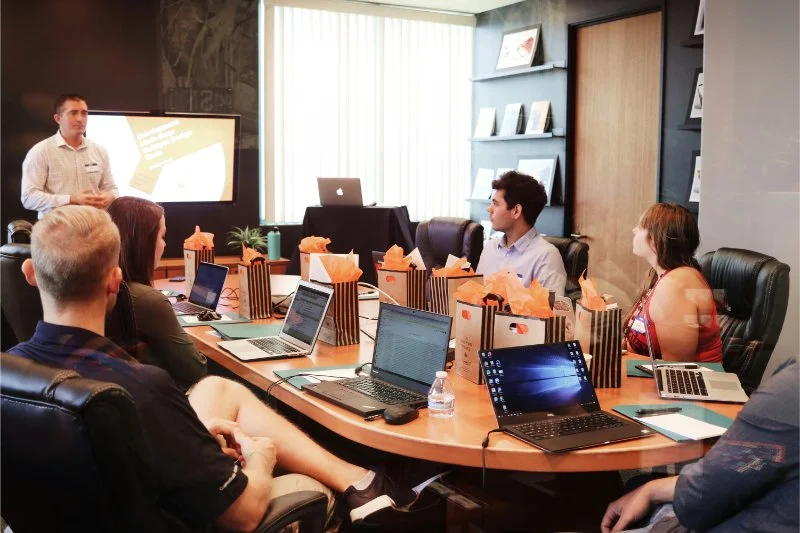The Importance of Curiosity in Leadership
As school leaders, we often feel the pressure to have all the answers. We juggle data, deadlines, staffing, family engagement, curriculum, and compliance—while trying to keep the mission of student success at the center. But what if the secret to stronger leadership wasn’t just in knowing, but in wondering? In asking thoughtful questions, looking closer, and choosing to learn from what others overlook?
That’s where curiosity comes in.
I’ve always believed that curiosity is one of the most underappreciated leadership skills. It fuels innovation, deepens understanding, and helps us lead with empathy and intention. And recently, during a walk on the beach with my mom, I was reminded of why curiosity matters so much—especially in leadership.
Seeing the Story in the Shells
Recently, I had the joy of spending a weekend with my mom on Amelia Island. She’s known for her energy, her kindness, and—as I witnessed that morning on the shore—her quiet curiosity. As we walked along the beach, she stooped to collect shells. But, not the flawless, photo-ready ones, instead, she was picking up the broken fragments most people would pass by. She turned each one over gently, held it to the light, and wondered out loud what it had been through to end up there.
She told me stories of her father—my grandfather—who was known to be just as reflective. He once found an old bottle and wasn’t as interested in the object itself as he was in how it made him think. He loved stories, possibilities, the “what ifs” behind the everyday. My mom inherited that trait, and on the beach, I saw it so clearly.
That moment stuck with me—not just because of its beauty, but because it held a truth I think every leader needs to hear:
“Perfection tells a clean story. But curiosity invites a deeper one.”
Curiosity Helps Leaders See Beyond the Surface
In edducation, we often focus on what’s measurable—test scores, attendance, and performance metrics. And those numbers do matter. But they don’t always tell the full story.
When a student gets every answer right, we celebrate their success. But we don’t learn what challenged them, what they overcame, or where they grew. In contrast, a student’s mistakes or inconsistencies can reveal valuable insight—if we’re curious enough to dig in.
Curiosity invites us to ask:
Why did this student suddenly disengage?
What’s behind the drop in attendance in this grade level?
What’s missing from our strategy that might explain these gaps?
Curious leaders don’t just look at the data—they look through it. They seek patterns. They notice contradictions. And they engage their team in asking better questions, not just providing faster answers.
Curiosity Builds Stronger Relationships
As a superintendent and consultant, I’ve learned that curiosity is just as valuable in conversations as it is in data analysis. When we ask open-ended questions—when we’re genuinely interested in someone else’s perspective—we build trust.
Curiosity sounds like:
Tell me more about your concerns with this new policy.
What do you think our students need most right now?
What’s working in your classroom that others could learn from?
Leaders who model curiosity create a culture where it’s safe to be honest, to experiment, and to grow. That kind of culture isn’t just more pleasant—it’s more productive.
Curiosity Fuels Innovation
The most successful grants we’ve written at Bower Consulting didn’t come from one person having all the answers—they came from asking better questions. What if we added a mental health program for students struggling at home? What if we partnered with a local organization to bring hands-on STEM learning to our district?
These “what ifs” became real proposals, funded programs, and expanded opportunities.
But curiosity doesn’t stop at asking—it drives action. It inspires school leaders to explore new models, challenge assumptions, and pursue change even when it’s uncomfortable. Especially in education, where the stakes are high and the needs are always evolving, curiosity is the spark that moves schools forward.
Curiosity Makes Leadership Human
As school leaders, we’re often seen as the decision-makers, the steady hands, the ones who chart the course. But the truth is—we’re human. And curiosity allows us to lead from a place of humility. It reminds us that we don’t have to know everything. We just have to be willing to learn.
It also makes space for empathy. When we ask thoughtful questions—especially when things go wrong—we demonstrate that we care about the people behind the problem. That we want to understand, not just correct.
And that kind of leadership? It sticks with people.
Curiosity at the Core of Our Work
At Bower Consulting, curiosity is more than a mindset—it’s how we approach every project. We ask questions that go beyond checklists and timelines. We listen for what makes each school, student, and community unique. We’re not just writing grants—we’re telling stories that matter. And those stories begin with curiosity.
It’s what allows us to write proposals that resonate with funders. It’s what helps us align strategy with mission. And it’s what allows us to keep learning and growing with our partners.
Final Thoughts: What If We Got Curious?
Whether you’re walking a beach collecting shell fragments, analyzing student data, or thinking through your next leadership decision, remember this:
Curiosity doesn’t slow us down—it moves us forward.
It deepens our understanding, connects us to our teams, and helps us lead with clarity, empathy, and heart.
If this post inspired you, I invite you to join me in continuing the conversation. Each week, I share reflections and insights in my newsletter, Mary’s Minute, where leadership meets learning—and where a little curiosity goes a long way. Sign up for my newsletter here!
And if your school is ready to pursue funding opportunities with curiosity, strategy, and purpose, let’s talk. I’d love to explore how Bower Consulting can support your goals.



